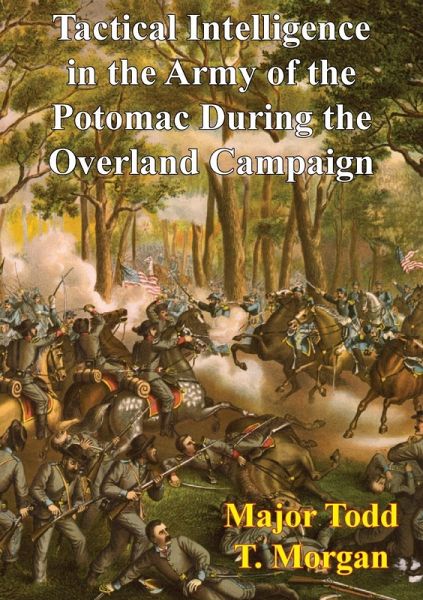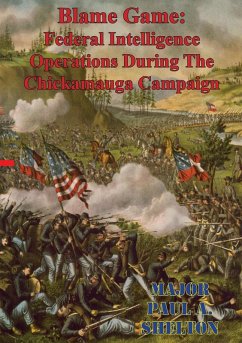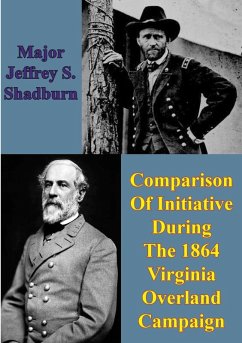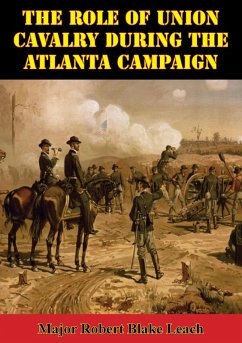
Tactical Intelligence In The Army Of The Potomac During The Overland Campaign (eBook, ePUB)

PAYBACK Punkte
1 °P sammeln!
This study examines how Lieutenant General Ulysses S. Grant and the Army of the Potomac used tactical intelligence during the Overland Campaign. Although Grant did not achieve his operational objective to defeat General Robert E. Lee in the field, tactical intelligence allowed him to continue the operational maneuver of the Army of the Potomac, which later contributed to the eventual defeat of Lee in April of 1865. The examination of tactical intelligence in the Army of the Potomac covers the period of 4 May to 12 June 1864. It encompasses campaign planning and preparation, as well as the batt...
This study examines how Lieutenant General Ulysses S. Grant and the Army of the Potomac used tactical intelligence during the Overland Campaign. Although Grant did not achieve his operational objective to defeat General Robert E. Lee in the field, tactical intelligence allowed him to continue the operational maneuver of the Army of the Potomac, which later contributed to the eventual defeat of Lee in April of 1865. The examination of tactical intelligence in the Army of the Potomac covers the period of 4 May to 12 June 1864. It encompasses campaign planning and preparation, as well as the battles of the Wilderness, Spotsylvania Court House, North Anna River, and Cold Harbor. The study combines a general contextual overview of the campaign and battles with a focused discussion and analysis of tactical intelligence collection and use. The study also includes background discussion of influences that contributed to the lack of intelligence functions in the War Department and the Union Army, the intelligence organizations that emerged in the Army of the Potomac, and description of the primary forms and methods of tactical intelligence collection used during the campaign.
Dieser Download kann aus rechtlichen Gründen nur mit Rechnungsadresse in A, B, BG, CY, CZ, D, DK, EW, E, FIN, F, GR, HR, H, IRL, I, LT, L, LR, M, NL, PL, P, R, S, SLO, SK ausgeliefert werden.













